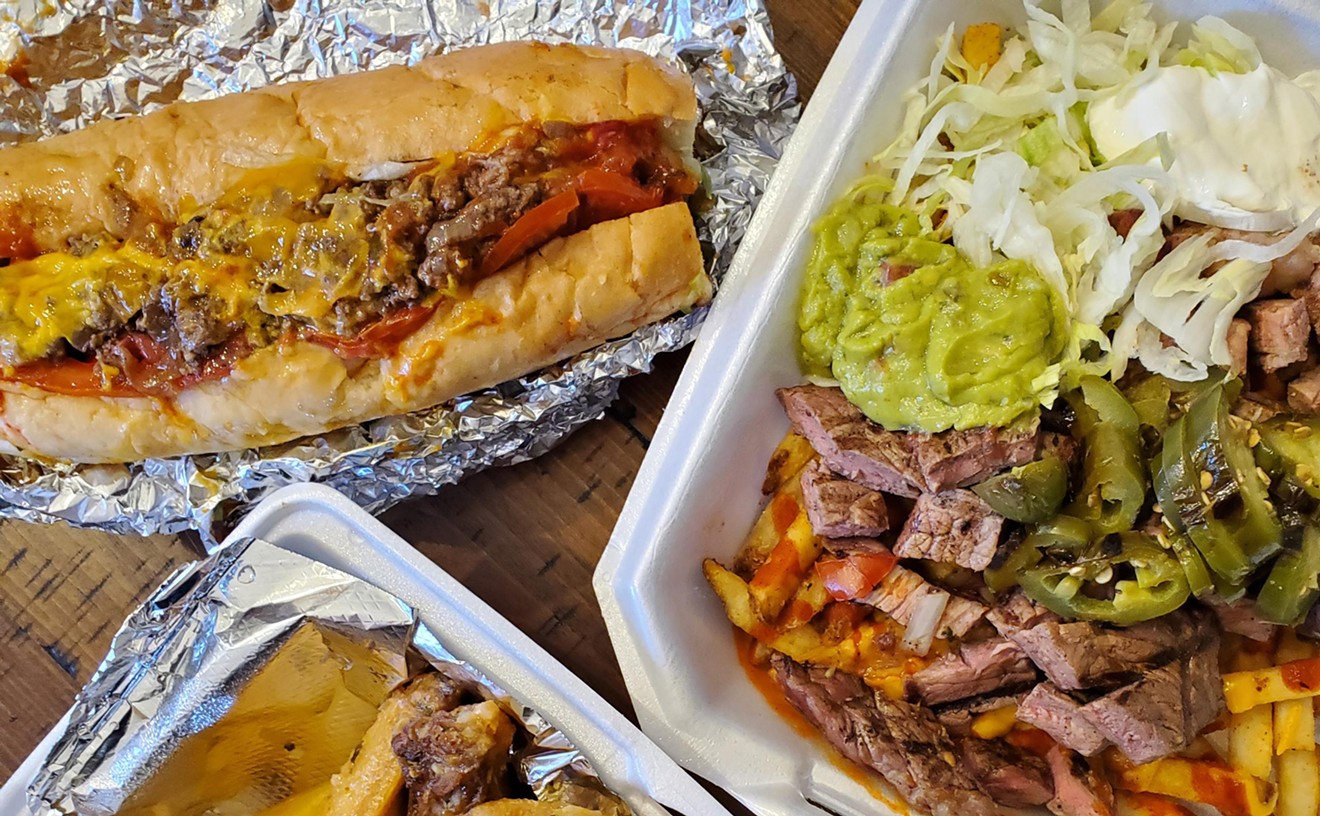"Now is the time for fall, and we are finishing up the summer stuff," says chef Steve Redzikowski of Oak at Fourteenth in Boulder. "Right now it's that change period, where we are in the lull before it starts popping with onions and varieties of potatoes that, when you taste these, they aren't the usual potato, they are insane, with a thin skin and creamy texture."
Excitement like Redzikowski's isn't unusual when it comes to really good produce — not that chefs can predict exactly what will arrive when. After all, there's no exact formula for when certain things will ripen, which makes planning an autumn menu both fun and a little stressful. Weather can change things quickly, too, and Colorado is known for some wacky and extreme temperature changes.
But one thing is definitely certain: The ingredients coming from local farms are some of the best in the country.
At Beast + Bottle in Uptown, chef Paul C. Reilly has always incorporated local seasonal produce on his menu, working with an array of farmers and urban gardens. This year, that's been more challenging, he admits, with the pandemic leading to so many operations shutting down over the last six months.
"We definitely have shifted, but we still use a lot of local farms, just different ones," says Reilly, who also runs Coperta, a nearby Southern Italian restaurant. "Mainly it's just because of delivery days and being short- staffed at the restaurants."
Even if so much is different for Reilly, as well as for almost every other chef and farmer these days, he's excited to bring on fall produce. This includes cardoons, okra and sunchokes from Andrew Nowak's Community Table Farm, which works with Slow Food’s Ark of Taste to grow some really unusual vegetables, such as Makah Ozette potatoes and deer tongue lettuce.

Esoterra Culinary Garden is one of the many small farms catering to chefs and restaurants.
Linnea Covington
One ingredient that's exciting Reilly right now is radishes: daikon, watermelon, black and Spanish.
"This year I'm really jazzed on them, but I'm using them differently," he says, adding that in the past he considered watermelon radishes one of the most overused ingredients, since chefs used them simply because they look nice. "Where I have been having fun is grating them: They aren't as pretty, but it adds body, and grating takes away some of the sharp pepperiness; you still get crunch without that in-your-face radish flavor."
The grated radish will end up in a slaw that Reilly uses for tacos and salads, as well as on the blackened leopard shark sandwich currently on the Beast + Bottle menu.
He's also stoked about haruki turnips, which have a spring and fall season; his favorites come out in the fall. "The flavor is more indicative of fall, and I love turning people on to them raw," he says. "I get some that are as juicy as apples." At American Elm in the Berkeley neighborhood, local produce accounts for 25 to 50 percent of the menu, depending on what chef Brent Turnipseede can get. Squash is a big fall favorite, and he sources his from Kiowa Valley Organics. With the cucurbitas, Turnipseede will whip up a salad with pressed pears and cider vinaigrette, as well as a vegan pasta dish with roasted-pumpkin purée on the bottom and pepita pesto and charred coconut cheese on top.
He also makes smoked stracciatella fritters with whatever he has on hand. "I use whatever kinds of squash I can get," says Turnipseede. "I wrote the recipes so they are pretty flexible and not too specific to the kind we use."

A seasonally appropriate display of squash at the Kiowa Valley Organics Inc. stand.
Linnea Covington
Pumpkin isn't on the menu at Chow Morso Osteria in downtown Denver, and that's just fine with chef/owner Ryan Fletter, who also runs Barolo Grill. While Italian food might not be the first cuisine that comes to mind when considering how to use Colorado produce, Fletter knows how to make local fruits and vegetables shine in his recipes. And right now, he's making the most of summer's leftover bounty.
"When the winter hits, you're losing produce options and dealing with parsnips, carrots and root veggies, but we still do everything we can with local folks," Fletter explains. "We started to turn the corner at Chow Morso with roasted beets and delicata squash, but at Barolo we're still pulling menus with the corn shoots and fresh greens."
Even though he's a fan of summer produce, Fletter is excited about what his farms will provide in the fall. One of his constants is Esoterra Culinary Garden. He's still getting fresh greens and tomatoes from this Longmont operation, but he was recently surprised to receive some of the farm's homegrown Calabrian chiles.
"They know in general what we like and bring that," explains Fletter. "But sometimes they might bring in a bunch of radish greens to see if we want to use them, and I might use it to make a bitter green to go with pasta." The surprise is part of the fun of working with small, local farms. Fletter also uses Rocky Mountain Fresh and whatever farms Fresh Guys Produce is sourcing from around the area; he also uses organic produce from small farms nearby, including Isabelle Farm, Cure Organic Farm and Oxford Farms. He's getting a lot of proteins from Colorado outfits, too, including River Bear Meats, charcuterie from Elevation Meats and Il Porcellino salumi, and chicken and duck eggs from Rocky Mountain Pastures.
Redzikowski has worked with Red Wagon Farm for more than a decade; he's known owner Wyatt Barnes since his days cooking at Frasca over fifteen years ago. Most of the goods go to Oak at Fourteenth and Corrida, but some of the tomatoes, peppers and other produce make it down to Denver and Brider, the fast-casual spot that he and Bryan Dayton own. And you can expect to see produce from local farms popping up in pizza, salads and charcuterie boards at New Yorkese, the spot that the pair just opened on the roof of the new Avanti food hall in Boulder.
"Wyatt's stuff is pretty amazing," says Redzikowski. "I have lived in New York City and went to the farmers' market there, and in Napa and Sonoma, too, and Wyatt's stuff keeps up with the stuff in both those places."

Wyatt Barnes, owner of Red Wagon Farm, holding the Steverino, named after chef Steve Redzikowski .
Linnea Covington
Another ingredient that excites Redzikowski is onions. He'll cook down really good cipollini onions with braising liquid taken from cooking short ribs, a bit of sherry and some Madeira, then purée it to make a super-smooth take on French onion soup. And diners at Oak will soon be able to taste fall in the form of roasted-squash soup capped with a toasted chai marshmallow.
To work out these dishes and solidify the menu, Redzikowski's team frequently uses produce from California to test recipes, then waits for the local produce to roll in. "We imagine what this is going to be like when we get the really great onions, squash or pears," he explains. "If it's good with the bulk produce, then it's going to be really good when you get in the local product."
There's no place like Colorado in the fall — and food produced from fare provided by this state's farms tastes as good as it looks.















